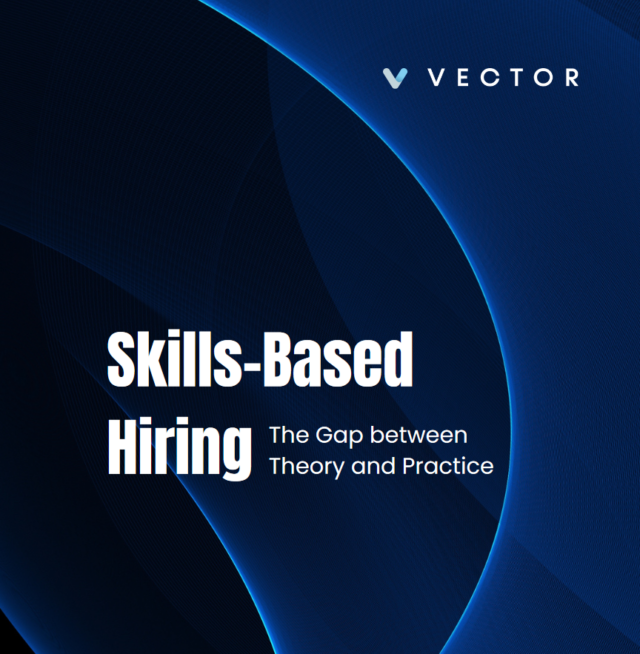We’ve been hearing for quite some time that skills will dominate in recruitment. That future selection will purely be based on skills. That it can help solve the structural labour market shortages. And even that A.I.-driven skills-based hiring will make everything easier. But in reality, progress has been slow. Research shows that in practice, only a handful of companies have abandoned traditional diploma requirements in favour of skills tests.
Yet many remain optimistic about the numerous possibilities of skills as a means of communication in the labour market. Take, for instance, Matt Alder, known from The Recruiting Future Podcast and recently a guest on another podcast, Psych Tech @Work, specifically discussing this topic. He did so in response to research by Vector, a TA software company that examined the gap between theory and practice through 11 qualitative interviews and two focus groups with Heads of Talent Acquisition, collectively responsible for over 1 million employees.
Pain Point: the Hiring Manager
According to the research, skills-based hiring still holds great promise for organizational agility, workforce diversity, and competitive advantage, as indicated by the respondents. However, there is also a strong need for better definitions that apply across different functions and industries. Current approaches often fail to align closely with the specific needs and goals of organizations. Additionally, the research identifies a significant pain point: the hiring manager. Many hiring managers still prefer to see traditional diplomas and are not fully embracing the revolution, as noted by the respondents.
The hiring manager appears to not fully embrace the skills revolution yet.
“The role of the hiring manager is crucial in recruitment, but all too often, a lack of skills and poor practices undermine an organization’s ability to attract talent,” as Vector CEO Neil Kelly puts it. Therefore, if organizations want to transition towards more skills-based hiring, they must at least guide and train the hiring managers in this direction, according to the respondents. They believe hiring managers should also play a significant role in identifying the required skills. Otherwise, the transition will fail.
What is hard? And what is a soft skill?
What complicates skills-based hiring in practice is the sometimes unclear distinction between hard and soft skills, and the taxonomy of all these skills. “One vendor had as many as 50,000 skills in their taxonomy!” the researchers exclaimed with great surprise. However, because of the significant demand for new skills and the structural scarcity, they remain optimistic about its opportunities in the labour market. “Although there is little evidence for it, most respondents see the principles of skills-based hiring as a chance to democratize the job market and provide more people with access.”
There is hardly any evidence to be found of the flexibility that skills-based hiring was supposed to bring.
In practice, they still encounter numerous obstacles. For instance, companies barely measure which skills are needed for which positions and how they can bridge the gap between demand and supply. There is also scant evidence in practice of the assumed flexibility that skills-based hiring was supposed to offer, nor of the (presumed) financial benefits such an approach might bring. Moreover, many organizations often lack targeted training when hiring based on skills rather than experience.
Great promise
The conclusion of the research is clear: skills-based hiring still holds great promise. However, if one aims to turn that promise into tangible benefits, there’s still a long way to go. “Skills-based hiring challenges many ingrained beliefs and behaviours. Therefore, an evidence-based approach and providing appropriate training are necessary for successful implementation within the organization.” According to the researchers, clear metrics are also crucial, not only concerning company performance but also in terms of employee engagement and actual diversity.
‘Skills-based hiring challenges many ingrained beliefs and behaviors.’

Read the entire study
Read the entire study here: ‘Skills-Based Hiring Report, The Gap Between Theory and Practice‘.
Skills Based Hiring



